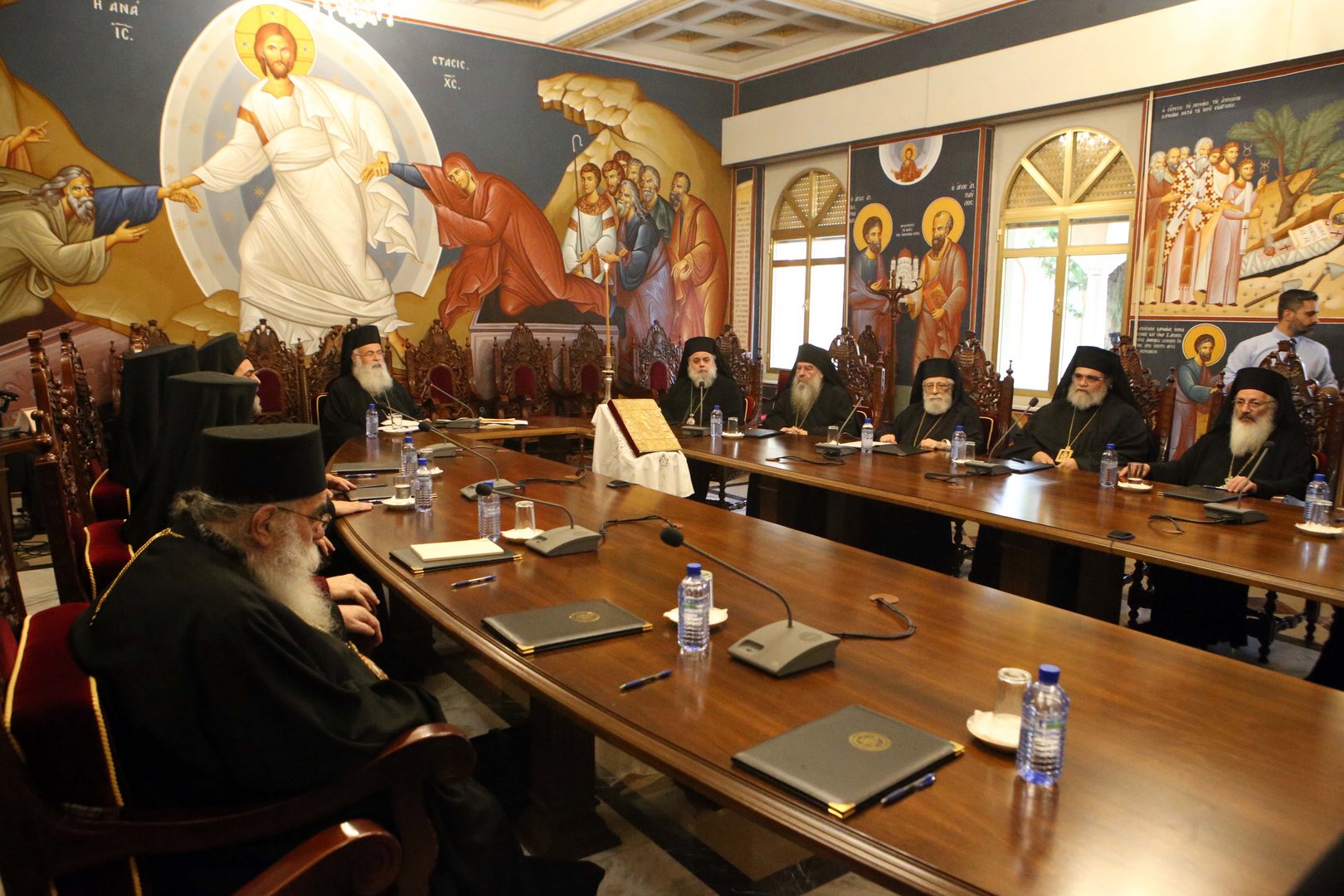With the passing of Archbishop Chrysostomos II, and the vacating of the throne, the caretaker of the Church of Cyprus will now initiate procedures for elections leading to the nomination and enthronement of a new Prelate.
The entire process is expected to take under two months. The caretaker is Paphos bishop Georgios, as by tradition the steward of the throne in Cyprus is always the bishop of Paphos regardless of seniority.
Within 10 days of the throne being declared vacant, the caretaker issues two circulars: the first orders church officials to draw up electoral registers within 15 days; and the second sets the date for elections, to be held within 40 days after the vacating of the throne.
Under an amendment to the church charter instituted in 2010, elections are direct – people vote in their registered parish. And there are no formal ballots, as in civilian elections; instead, the ballots are a blank piece of paper, on which parishioners write down whomever they’d like to be archbishop. And they can vote for essentially any senior rank of the clergy – including deacons.
Prior to the change, separate elections had been held – one among laypersons, another among the clergy. It was a more complex process, involving the election of delegates before the nomination of the actual candidates for the throne.
Eligible for the throne are all the members of the Holy Synod, as well as celibate elders and deacons who hold a degree from an accredited school of theology and who have held a ministry for at least 10 years. Candidates must be at least 35 years of age.
Another important difference now is that all people of the Orthodox faith aged 18 and above, and who have been residing permanently in Cyprus for the past year at least, can vote. That means, for example, that Russian and Greek nationals living here get to cast a ballot. But up until 2010, only Greek Cypriot Orthodox over the age of 18 could cast a ballot.
Once the ballots are counted, those top three clergymen garnering the most votes become the official nominees for the throne – a kind of ‘triumvirate’. The Holy Synod convenes to ratify the results and, in the event of a tied vote between the top contenders, it decides by lottery who gets included in the ‘triumvirate’.
Next, three days from the ratification of the ‘triumvirate’, the caretaker reconvenes the Holy Synod for the purpose of its electing the new archbishop. Currently, with the passing of Chrysostomos, the Holy Synod comprises 16 members.
The three nominees – assuming they happen to be members of the Holy Synod – can likewise vote and can vote for themselves. Success therefore largely hinges on the forging of alliances within the body.
A first round of voting is held, where if one of the three candidates acquires 50 per cent +1 of the votes (that is, 8 + 1 = 9) he is named archbishop. If not, a second round takes place, this time featuring the two of the three candidates who got the most votes in the first round. Again, the 50 per cent + 1 vote applies for the victor. If that still fails to yield a winner, he will be decided by simple lottery.
Subsequently, the members of the Holy Synod perform the canonical act at a cathedral. The ordination (if the person elected is not a bishop) and the enthronement ceremony take place within 15 days of the election procedure at the Holy Synod.
The likeliest successors to the throne are Limassol Bishop Athanasios, Bishop of Tamasos Isaias, and Paphos bishop Georgios.
An opinion poll carried out this summer gave Athanasios a firm lead – around 17 percentage points ahead of the second, Bishop of Tamasos Isaias.







Click here to change your cookie preferences